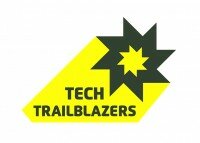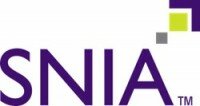Our tape summit has proved to be quite successful. So much so that we are adding a European Tape Summit for the Fall of 2012.
This “memo” below is a direct result of the Tape Summit 2012 and was created by all of the leading tape vendors as a manifesto about the strength of the tape industry. Way to go tape vendors !
/greg
2012 Tape Market State of the Union Memo
On May 16, 2012 representatives of tape storage providers BDT, Crossroads Systems, FUJIFILM, HP, IBM, Imation, Iron Mountain, Oracle, Overland Storage, Quantum, Spectra Logic and Tandberg Data issued the following memo to set the record straight on the current trends, usages and overall health of the tape industry.
While many organizations already know tape for its traditional uses – backup, disaster recovery and compliance – most probably don’t realize that modern applications now enable tape to be used as an active file archive and as low-cost NAS storage for latency-tolerant data. For access to large quantities of stored data, tape’s role in big data, cloud, HPC and IT operations is expanding dramatically. These markets take advantage of the integration of tape’s historical benefits (cost-effectiveness and media longevity) and new innovations (data integrity verification and file system interfaces) to use tape to protect large data sets.
Explosive data growth and shrinking IT budgets are putting pressure on companies to find innovative storage solutions to meet their organizational demands. Increasingly that means tape, thanks to its significant cost advantages, reliability, and continued innovations improving tape’s capacity, speed, and ease-of-use.
Cost of Ownership
· LTO-5 tape costs up to 15x less than SATA disk for long-term archive of large quantities of data[i]
· TCO of tape solutions is approximately 2-5 times less than VTL with deduplication for backup solutions[ii]
· A single administrator on average can manage up to one hundred terabytes of disk data or up to multiple petabytes of data on tape[iii]
Greater Reliability
· Individual tape media cartridges are 2-4 orders of magnitude more reliable than SATA disk drives[iv]
· NERSC study shows automated tape systems have a proven reliability of more than five 9’s (99.999%)[v]
Innovations: Greater Capacity, Speed and Ease of Use
· Largest disk drives stores 4 TB[vi] vs. largest tape, which stores 5 TB (10 TB compressed)[vii]
· Active archive applications and LTFS let tape be used as NAS storage[viii]
· Automated media health and data integrity verification mitigates concerns of long-term data access[ix]
These facts, coupled with the continued, rapid growth of data, have made tape increasingly important. According to IDC, the midrange and enterprise tape market is expected to grow over the next several years. Further, “As part of the continuing digital data creation explosion that is well documented, the amount of data kept on tape is expected to grow at a compound annual growth rate (CAGR) of 45 % from 2010 through 2015.”[x] Additionally, tape is being quickly adopted in emerging data intensive markets: “In a 2012 study of technology deployments for Big Data applications, Intersect360 Research found that 35% of respondents already are using tape as part of their storage infrastructure for Big Data.”[xi]
Based on the latest research from 2011/2012, a few facts for the record:
• Tape remains in heavy use for enterprise backup, as 78% of the respondents use tape, typically either disk-to-tape (D2T) or disk-to-disk-to-tape (D2D2T). Gartner Group – July 2011 [xii]
• The size of the tape market in 2011 was more than $2.2 billion dollars for just the tracked market revenue on drives, library automation and open system media. This does not include the additive software ecosystems or proprietary enterprise media revenues. IDC/SCCG – 2012[xiii]
Over the past few years many of the facts around tape storage have been misquoted or misunderstood. For example, Dave Russell, Gartner analyst, has pointed out “continued misquotes re: Gartner and tape failure rates”[xiv] in a recent discussion with Curtis Preston. Please join us on May 16 for a discussion with the tape storage group to discuss tape’s role in the data centers of 2012 and beyond.
Sincerely,
Representatives of the Tape Storage Industry
#tapestorage
|
Dan Jan BDT, Sales and Marketing Manager |
Jim Tramontana
IBM, Program Director, OEM Storage Marketing |
Peri Grover Overland Storage, Director of Product Marketing |
| David Cerf Crossroads Systems, EVP Business & Corporate Development |
Craig Conti Imation Corporation, Director, Global Product Line Management |
Eric Bassier Quantum, Director of Marketing |
|
Peter Faulhaber FUJIFILM Recording Media USA, Inc. Senior Vice President |
Jeremy Suratt
Iron Mountain, Sr. Solution, Marketing Manager |
Molly Rector
Spectra Logic, EVP Product Management & WW Marketing |
|
Simon Watkins
HP Storage, WorldWide Tape Product Marketing Manager |
Tom Wultich |
Marije Gould Tandberg Data, Vice President of Marketing |
[i] Reine, D., et al. “In Search of the Long-Term Archiving Solution – Tape Delivers Significant TCO Advantage over Disk,” The Clipper Group, December 23, 2010, http://www.clipper.com/research/TCG2010054.pdf. — Study compared a 12-year TCO for Tape to Disk for long-term archived data
[ii] Enterprise Strategy Group, Inc. “A Comparative TCO Study: VTLs and Physical Tape,” Feb. 2011
[iii] Moore, F. Horison Information Strategies, “Tiered Storage Takes Center Stage,” http://www.horison.com/OracleTieredStorageTakesCenterStage.pdf. Accessed April 2012
[iv] INSIC (Information Storage Industry Consortium), International Magnetic Tape Storage Roadmap, Part I: Applications & Systems, November 2011. http://www.insic.org/news/A&S%20Roadmap.pdf
Preston, Curtis. “Have we put tape out to pasture too soon?” Backup Central, updated 3/19/2012. http://www.backupcentral.com/mr-backup-blog-mainmenu-47/13-mr-backup-blog/376-have-we-put-tape-out-to-pasture-too-soon.html. “ From this: “you are 100 times more likely to have bad data on disk than you are on an LTO-5 tape drive, and 10,000 times more likely than if the data is stored on a T1000C or TS1130 drive.”
[v] Active Archive Alliance. “NERSC Exceeds Reliability Standards With Tape-Based Active Archive,” Case Study, 2012.
[vi] Alabaster, Jay. “Hitachi GST Begins Shipments of a 4TB Disk Drive,” IDG News/PC World, December 12, 2011. http://www.pcworld.com/article/246013/hitachi_gst_begins_shipments_of_a_4tb_disk_drive.html
[vii] Harris, Robin. “World’s 1st exabyte storage system,” Storage Bits. January 31, 2011. http://www.zdnet.com/blog/storage/worlds-1st-exabyte-storage-system/1266
[viii] Mearian, Lucas. “Quantum Releases LTFS Appliance that Makes Tape look like NAS,” Computerworld, April 16, 2012. http://www.computerworld.com/s/article/9226247/Quantum_releases_LTFS_appliance_that_makes_tape_like_NAS
[ix] Guess, Angela. “Storing Big Data on Tape,” Dataversity, April 2011, http://www.dataversity.net/storing-big-data-on-tape/
[x] INSIC (Information Storage Industry Consortium), International Magnetic Tape Storage Roadmap, Part I: Applications & Systems, November 2011. http://www.insic.org/news/A&S%20Roadmap.pdf
[xi] Snell, Addison. “The Big Data Opportunity,” Intersect 360 Research, unpublished. Permission from author, 2012.
[xii] Gartner Group, “Use of Disk for Backup Accelerates at the Expense of Tape,” Gartner Reveals Best Practices for Data Backup White Paper, June 15 2011. Referenced in http://www.cio.in/sponsored-white-paper/gartner-reveals-best-practices-data-backup
[xiii] Combined data from Santa Clara Consulting Group report Backup Tape Technology: Global Review 2012, for mid-range drive and media market, with data from IDC report Worldwide Midrange and Enterprise Tape Automation, May 2012, which reviews automated systems. Total shown is our best interpretation of data as presented.
[xiv] Preston, Curtis. “Gartner Never Said that 71% Tape Restores Fail,” Backup Central. 3/9/12. www.backupcentral.com





